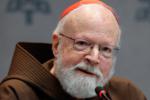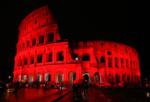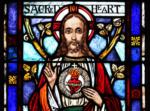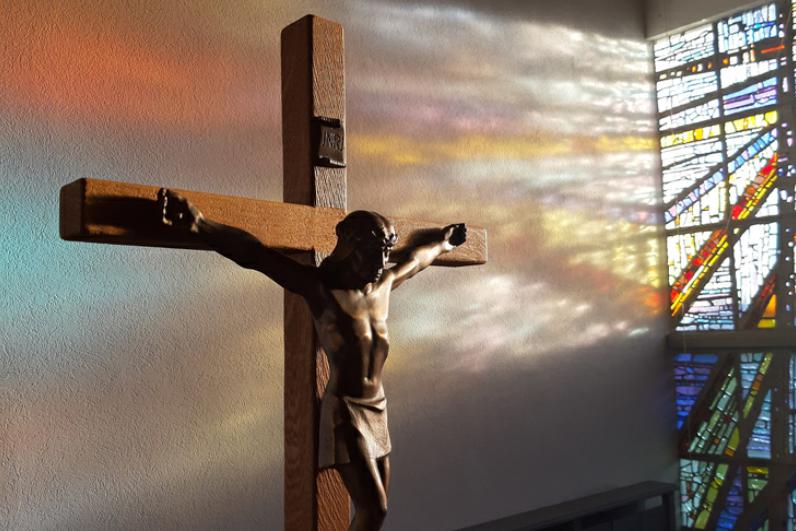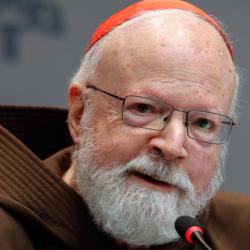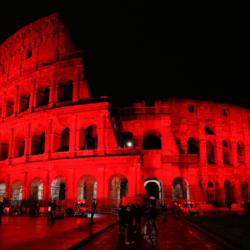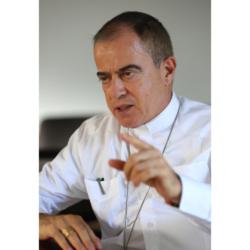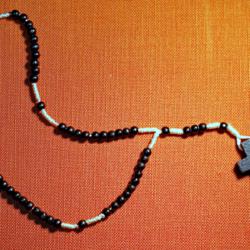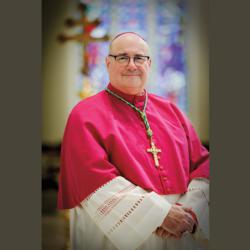His body, his choice: Abortion, politics, and our communion crisis
Choice. It's a word that expresses the religion of most Americans: one that centers on the self and the freedom to pursue one's own desire. Freedom is the basis for happiness, it is true, though not in the way we often understand. Simply doing whatever we want leads to misery, as if it were a law of nature. Perhaps it is.
My body, my choice. The "religion of self" possesses a sacrament for many in America. Nothing embodies the worship of individual freedom more than to kill another to preserve it. Even self-proclaimed Catholic women will defend the "moral agency" of women to murder their own children.
God's choice. None of us have chosen our own lives. God has infused an immortal soul within us at the moment of conception. Even if we made the choice to embrace the Catholic faith as adults, Jesus still reminds us, "You did not choose me, but I chose you and appointed you that you should go and bear fruit and that your fruit should abide" (John 15:16). Jesus teaches us that human choice is not the source of life and fruit, because we depend upon God for what matters most.
His body, his choice. "This is my body." This not only serves as a declarative statement but an invitation. If we accept the gift of his body, we affirm the declaration as true, and enter into communion with Christ as one flesh with him. We can no longer say, "my body," because we become members of his body, no longer belonging to ourselves. Therefore, we can no longer say "my choice," because if our lives belong to him then we cannot act apart from Christ.
His life, my life. Can a Christian simply pursue his or her own interest? To receive the gift of Jesus's entire life -- body, blood, soul, and divinity -- means that we are drawn out of the confines of our own life and freedom and into the conversation of heaven. The Christian life aims at becoming Christ, a son in the Son, so that we can say with Paul: "It is no longer I who live, but Christ who lives in me" (Galatians 2:20). He enables me to be free and to bear fruit by giving my life to the Father within, in, and through him.
A double life. If I insist upon "my body, my choice," by living in accord with my own will over his, then I cannot expect also to receive Christ's body and the promises with it. We have chosen our own way, rather than the way of Christ. How can we live according to our own will, rejecting God either explicitly or implicitly, and then come to Christ in communion on Sunday as if we were faithful to him? This would be like a man who lives apart from his family in an adulterous relationship all week, and then comes home to visit his family on the weekend as if nothing were amiss.
The life of another. Jesus said that he would be present to us in the least of our brothers and sisters. There is no one who is less, who is littler, than the unborn. If we harm the life of another, either directly by killing their flesh, or indirectly by enabling or assisting another to do so, we attack Christ himself. He has presented himself to us for care and protection, and instead we have killed him. Imagine coming to give the Lord a kiss on Sunday after seeking to kill him.
A life for others. Jesus offered his flesh for our salvation. He also gives us his flesh to eat. He becomes vulnerable. He is willing to be embraced by his enemies, although only his friends receive the life that gives. Those who receive him fruitfully must likewise give their flesh to others as he did. The Eucharist is a gift that is meant to be given to others in charity, as the Christian sacrifices himself for others in the world. The Eucharist, if we are receiving it fruitfully, should foster life and love; never selfish destruction.
That you may have life. Jesus offers mercy to all those who repent. Without repentance, we become severed limbs, cut off from the body by our own choice. This is true for all sinners (not just politicians who promote the murder of children). All need repentance. Without repentance, we approach Jesus's gift like Judas, with a false kiss. Allowing anyone to receive the Eucharist without faith, repentance, and charity does not offer them mercy, but condemnation (1 Cor 11:29).
The life of the world. No one benefits from the destruction of life. The victim and perpetrator both suffer great harm. Jesus gave his life for the world, and he now wants to heal the world through us. He wants us to be witnesses to the freedom he offers and to give of ourselves for the life of others. He came that we might have life, not death. He came that we might be free, not in bondage to sin. The Eucharist can save our country if we allow it to teach us that freedom and happiness come only through a sacrificial gift of self.



